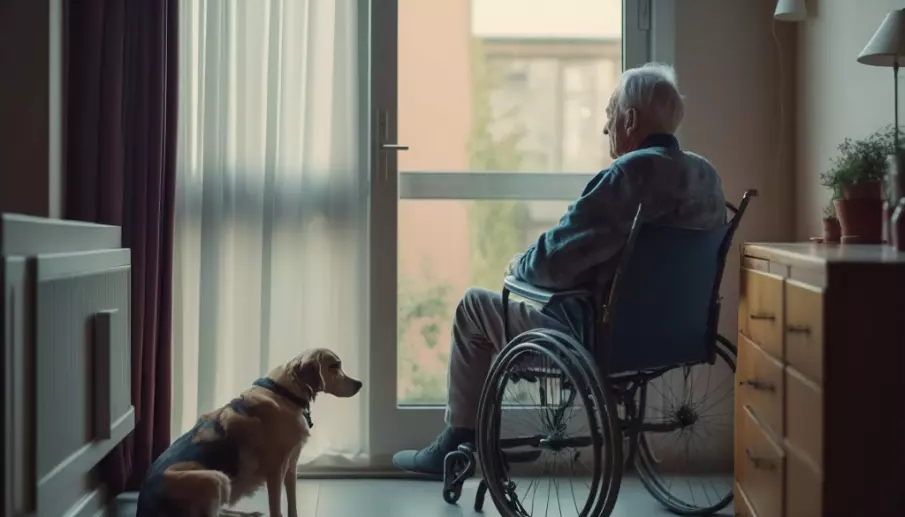5 Effective Ways To Manage Elderly Social Isolation

Healthy aging isn’t just about staying physically fit—it's also about keeping your social life active. As the years add up, it's easy to drift into solitude without even noticing. Maybe a family member has moved away, or perhaps friends have settled into different rhythms.
Whatever the case, social connections tend to loosen, but it’s never too late to tighten them again. Elderly social isolation is a real challenge, but it's one you can definitely overcome. It’s all too easy to feel a bit lonely as the years tick by, but you’ve got plenty of strategies at your fingertips to keep your social life bustling.
This guide is your roadmap to a bustling social life filled with joy, friendships, and community involvement. Here you’ll find practical, fun ways to connect with others and ensure that your later years are rich with companionship.
1. Participate In Community Activities
One of the best ways to overcome senior social isolation is by participating in community activities. Such activities offer the chance to meet others, acquire new skills, and remain involved. Look into local community centers, libraries, or senior centers. You'll find they often organize a range of events like book clubs, exercise classes, and hobby groups for senior citizens.
Participating in these activities allows you to connect with peers and forge new friendships. For example, joining a weekly knitting club or a gardening group can be both enjoyable and socially enriching. Volunteering is another fantastic way to stay connected.
Numerous organizations require volunteers, and your skills and experience are valuable. Volunteering allows you to contribute to your community, meet new friends, and remain physically active. From assisting at a local food bank to mentoring youth, the possibilities to engage are plentiful.

2. Cultivate Existing Relationships
Keeping in touch with current friends and family is key to managing elderly social isolation. Life gets busy, and it’s easy to lose touch. Why not reach out to an old friend? A simple phone call or message can reignite a cherished social connection and lead to regular catch-ups.
Make it a point to meet for coffee, meals, or even a walk in the park. Keeping a routine of regular visits or outings can fill your social calendar and uplift your spirits. Don’t hesitate to express your feelings to loved ones. Let them know if you’re feeling lonely or isolated.
Often, family members and friends are more than willing to spend time with you but might not be aware of your feelings. Open communication can lead to increased support and understanding.
3. Keep Physically Active
Physical activity is essential for maintaining good health and a lively social life. Engaging in exercise is a fantastic way to interact with others and help alleviate elderly social isolation. Explore the fitness classes offered at your local gym or community center.
Many places have activities like yoga, tai chi, water aerobics, and other senior-friendly options. These classes do more than just keep you fit—they connect you with a community of peers who can become friends.
Outdoor groups, like walking or biking clubs, offer a great mix of exercise and conversation. These groups are perfect for enjoying nature and meeting people who enjoy the same. Even regular walks in your neighborhood can lead to new connections and friendships.
4. Embrace Technology To Maintain Connections
In today’s tech-savvy world, a variety of tools can help you stay connected with loved ones, no matter the distance. Learning to use these tools can greatly reduce feelings of elderly social isolation. Start by getting familiar with social media platforms like Facebook or Instagram.
These sites help you stay updated with friends and family, share your own experiences, and even join interest-based online groups. There are specific communities for older people where you can exchange stories, advice, and community support. Video chatting is another excellent way to maintain personal connections.
Tools like Skype, Zoom, or FaceTime allow you to have face-to-face conversations with family and friends, wherever they might be. And don’t overlook online courses and virtual events. Many organizations also offer free or low-cost online classes covering a wide range of topics. Lifelong learning isn't just stimulating—it also connects you with people who share your interests.
5. Explore New Passions
Exploring new interests is a fantastic way to meet people and combat elderly social isolation. It’s never too late to start a new hobby or rekindle an old passion. Community centers, local colleges, and clubs often offer classes in arts, crafts, music, or cooking. These places are natural social hubs where conversations spark easily and new friendships blossom.
Traveling with a group is another great way to widen your social circle and immerse yourself in new cultures. Many travel agencies specialize in tours for older adults, offering both comfort and camaraderie as you embark on new adventures. These trips provide not just a change of scenery but also the opportunity to connect with fellow travelers who share your sense of adventure.
Concluding Thoughts
Tackling elderly social isolation is all about proactive engagement and being open to new experiences. By engaging in community activities, embracing technology, staying active, nurturing old friendships, and exploring new interests, you're doing more than just avoiding loneliness—you're actively enriching your life. Are you ready to get started? There’s a whole world of connections waiting just outside your door, ready to welcome you.
More to Read:
Previous Posts:











